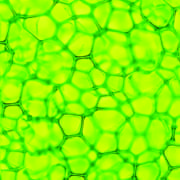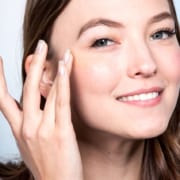Why our skin needs Vitamin D, Dr. G reports
Why is Vitamin D crucial in skincare?
In addition to being a key factor in skin cell growth and replacement, vitamin D also plays a major role in skin repair and protection. When microorganisms attack the skin, they secrete certain extracts that stimulate your skin to produce vitamin D. This vitamin D signals your skin’s innate immune system to start manufacturing a substance called cathelicidin, a very powerful germicide. Cathelicidin disrupts the integrity of bacterial cell membranes, resulting in the death of the microbes. Cathelicidin also helps promote the development of blood vessels and encourages new cell growth, both of which are essential for proper wound healing.
Your skin is also extremely susceptible to free radical damage because of its high rate of metabolism and fatty acid content. Free-radicals deteriorate your skin’s structural support and decrease its elasticity, resilience, and suppleness. In order to protect itself from this constant oxidative stress, your skin has a natural supply of antioxidants. One of the most powerful of these is vitamin D. In fact, Vitamin D has been shown to be more effective than vitamin E in reducing lipid peroxidation.
Technically speaking, vitamin D isn’t a true vitamin. A vitamin is defined as a substance that’s essential to daily life, which can’t be manufactured by the body. Since your skin can produce approximately 10,000 IU of vitamin D after just 20-30 minutes of summer sun exposure, it doesn’t really fit the profile. Vitamin D more closely resembles a hormone than a vitamin. The active form of vitamin D, called calcitriol, is the most powerful hormone produced by the human body. It has the ability to activate over 2000 genes, many of which are involved in critical aspects of skin cell metabolism, growth, repair, and protection.
What is better for absorbing Vitamin’s D’s benefits for the skin? Topical application, oral supplement or the Sun?
Applying topical products, which contain Vitamin D, or getting Vitamin D from the sun is very different than taking a vitamin D oral supplement. Oral supplements have to be broken down in the stomach and then distributed throughout the body. The last place supplements will reach (if they even do) is the skin. This is why we recommend using topical products, which contain Vitamin D for, skin health. However, oral supplementation of Vitamin D is crucial for internal health. You need to do all.








Leave a Reply
Want to join the discussion?Feel free to contribute!